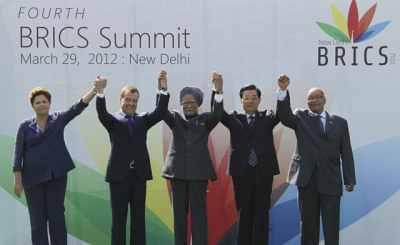
As advanced economies continue to be consumed by the tailback of the economic crisis that struck in 2008, the germ of an alternative model of economic growth seemed to be emerging on the anvil of the BRICS regional grouping that held its fourth summit in Delhi here on Thursday.
Representing Brazil, Russia, India, China and South Africa, the heads of state and governments spoke frankly about the need to help the developed world help itself because of the connected nature of the crisis.
However, they also prevailed upon each other to think radically, such as setting up a BRICS development bank.
...
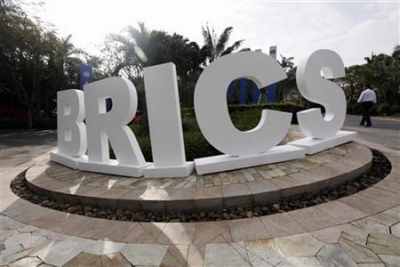
In fact, to give teeth to their political declaration, government-owned banks from all the five countries on Thursday agreed they would extend credit to each other in their local currencies, as well as allow for multilateral letters of credit.
Until the finance ministers of all the five nations report back next year on the feasibility of setting up a BRICS bank, their leaders agreed to confer on a new candidate for the post of World Bank chief (which has traditionally been an American, just as the IMF chief is traditionally elected from Europe).
All five nations, in fact, gave voice to the destabilising effect of monetary policies being adopted by several advanced economies that was keeping the market unstable, especially in the euro zone, saying structural reforms would only yield results if coupled with balanced growth.
...
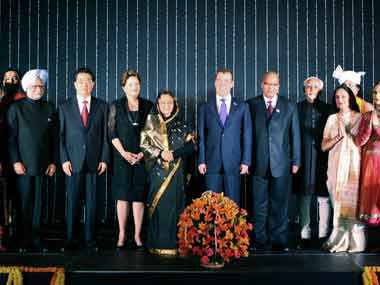
Brazilian President Dilma Rouseff, whose country has achieved staggering results in balancing socio-economic indicators, especially in health, education and per-capita income, led the charge, saying monetary policy was not enough, because it only bought time and triggered speculative bubbles.
Chinese President Hu Jintao, who hands over charge later this year to president-elect Xi Jinping, indicated his country's obsession with harmonious growth, which he insisted, should be accompanied by modernisation.
However, president Hu, who also advocated democracy in international relations, insisted BRICS and western nations were good friends and good partners forever. One major lesson from the economic crisis in the West, he said, was the shift from China's export-led model to one in which domestic demand would drive economic growth and maintain stability.
...
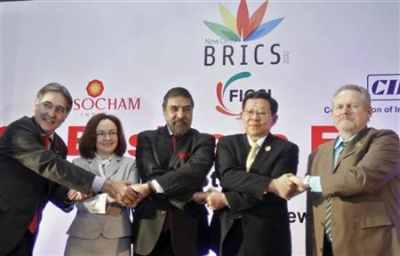
Russian president Dmitry Medvedev was blunter on the slow pace of financial reform by the West, an indication of his more strained ties with the region.
He admitted BRICS nations had also discussed political issues, including the situation in Syria and the reform of the United Nations Security Council, and insisted BRICS nations could not accept infringement and the use of force by other countries.
And, while South African President Jacob Zuma spoke feelingly about the vulnerability of agriculture to globalisation, as well as the challenges climate change and urbanisation posed to Africa, he pointed out how difficult it was for poor countries to resist pressures by the western world to open their markets.
...
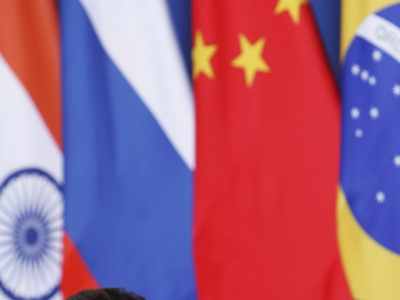
Still, it was left to Prime Minister Manmohan Singh to bridge the gap between the widely different economies present on the same dais on Thursday.
He said BRICS nations must find special ways to exploit intra-BRICS complementarities, expand the capital base of the World Bank and avoid political disruptions that create volatilities in global energy markets and affect trade flows.
It was evident the BRICS development bank was not viewed by these nations as an alternative to the World Bank. Nor were these countries challenging the core of the Bretton Woods financial system that emerged from the ashes of the Second World War.
...
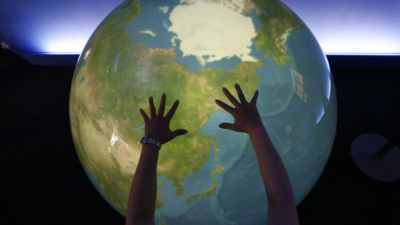
In fact, each BRICS nation has deeper financial relationships with advanced economies, none of which they want to upset.
The Delhi Declaration issued on Thursday was proof of the soft challenge on the cards, even though BRICS countries together represent 43 per cent of the world's population and have a 20 per cent share of the world's gross domestic product.
"We recognise the importance of the global financial architecture in maintaining the stability and integrity of the global monetary and financial system. We, therefore, call for a more representative international financial architecture, with an increase in the voice and representation of developing countries," the joint statement said.
...